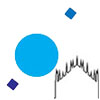
Clusters of galaxies are the largest and most massive, gravitational bound structures in the Universe.
Lying at the nodes of the cosmic web filaments in the present highly structured Universe, clusters of galaxies are at crossroads of cosmology and astrophysics: on one side they trace cosmic evolution providing information on structure formation, and are powerful tools to test the underlying cosmological models; on the other side they are unique astrophysical laboratories, ideal for the study of plasma physics, thermal and non-thermal processes, turbulence, magnetic fields, dark matter, etc.
Clusters are complex structures. They typically contain from tens to thousands galaxies. Nonetheless only few percent of their total mass is in the form of optical galaxies. Dark matter is the dominant (about 80%) component of clusters. About 15-20% of the total mass consists of diffuse, hot, metal-enriched, X-ray emitting plasma permeating the space between the galaxies: the intracluster medium (ICM).
Our group is active in exploiting data from various X-ray satellites (ROSAT, Beppo-SAX and XMM-Newton, Chandra, NuStar) to inspect in details clusters’ physics and evolution, aided also by observations at other wavelengths: radio (e.g. LOFAR), millimeter (through the SZ effect, e.g. Planck) and optical. We are involved in several projects like XCOP, CHEX-MATE, XXL, X-GAP.
Our main research projects include:
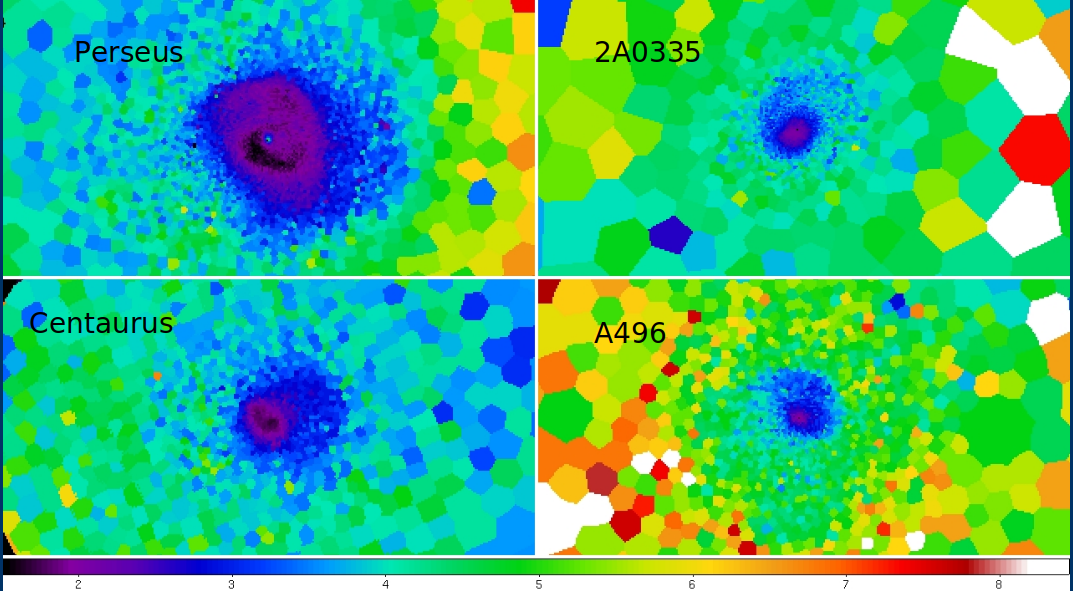
Thermodynamical properties of the ICM
Ghirardini et al. 2019
Ettori et al. 2019
Ghizzardi, Rossetti, & Molendi 2010
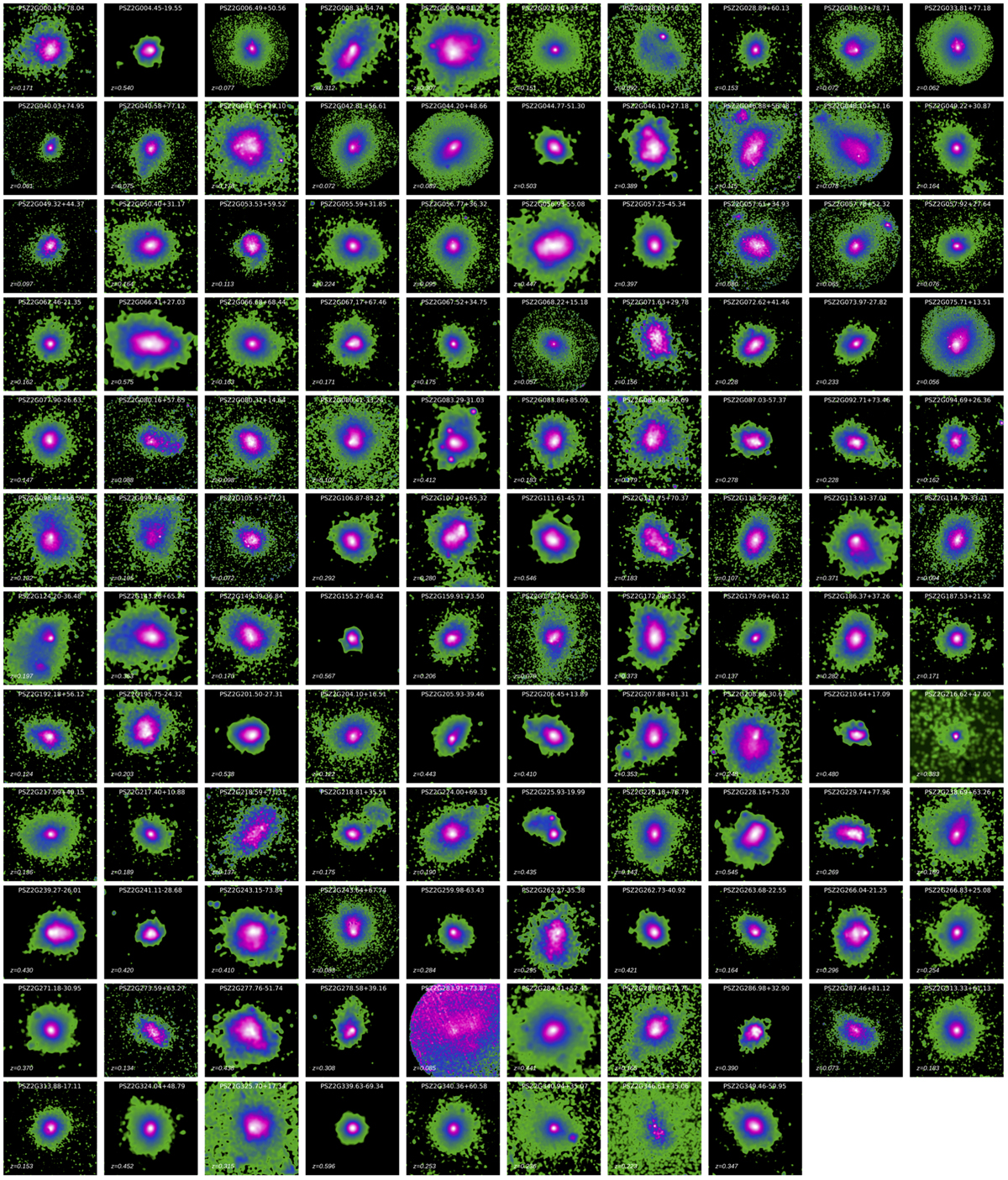
CHEX-MATE: The Cluster HEritage project with XMM-Newton: Mass Assembly and Thermodynamics at the Endpoint of structure formation
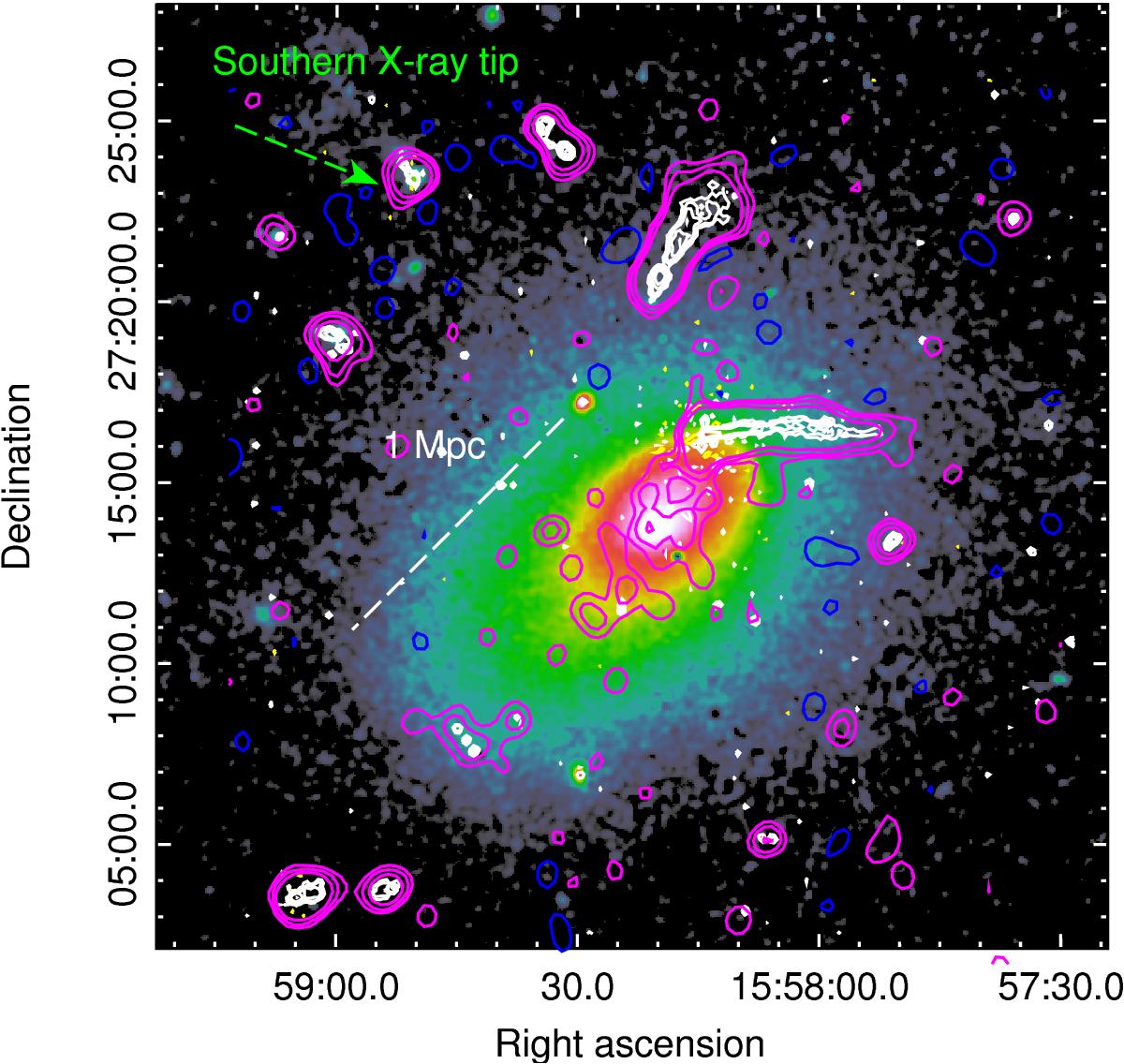
Non-thermal phenomena in the ICM and particle acceleration at shock fronts/relics
Di Gennaro et al. 2021
Van Weeren et al. 2021
Locatelli et al 2020
Botteon et al 2020
Cova et al 2019
Botteon et al 2019
Botteon et al. 2018
Venturi et al. 2017
Botteon et al. 2016a
Botteon et al. 2016b
Gastaldello et al. 2015
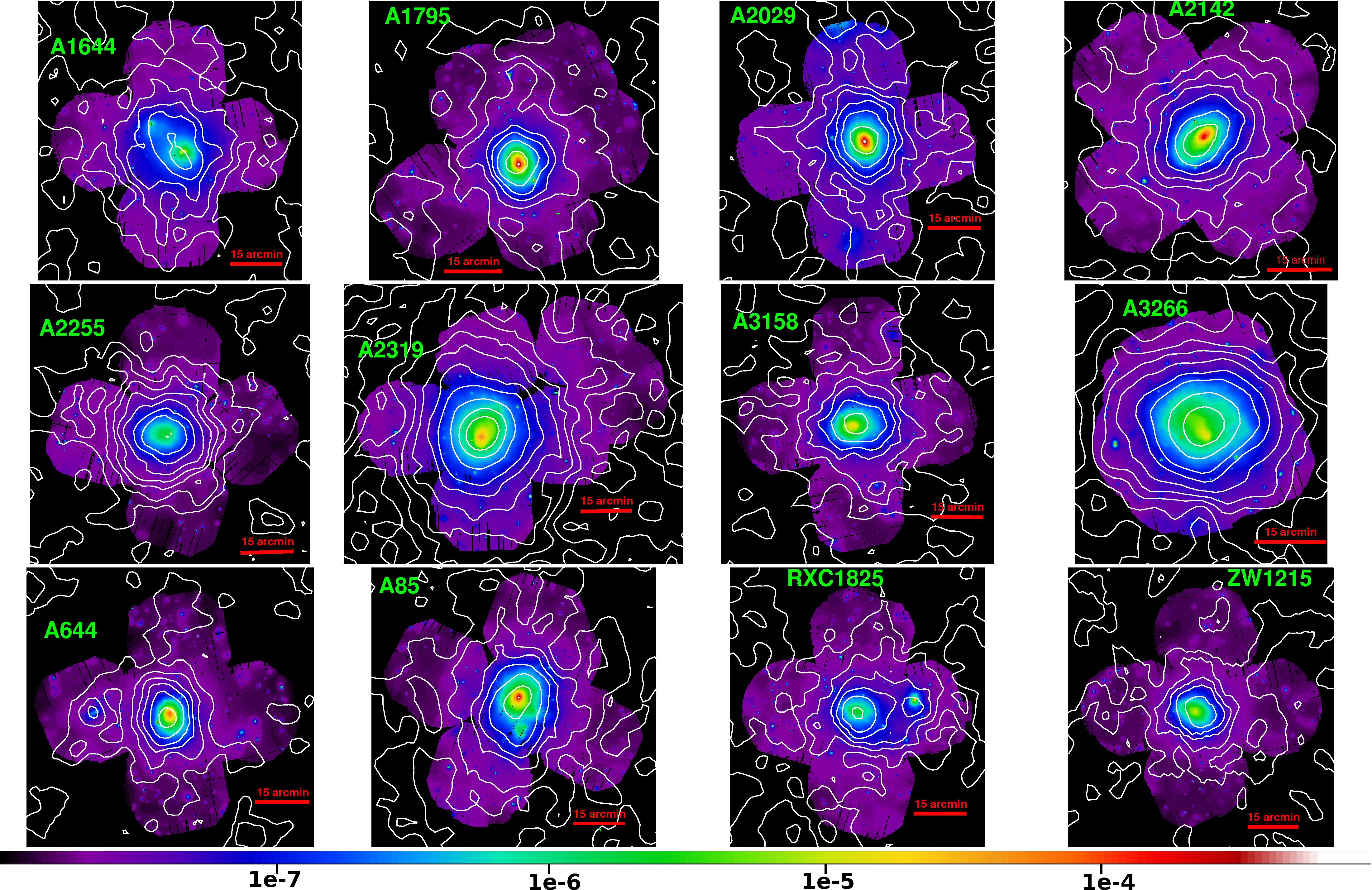
Outskirts of nearby galaxy clusters
Ghizzardi et al. 2021
Eckert et al. 2019
Tchernin et al. 2016
Eckert et al. 2015
Eckert et al. 2012
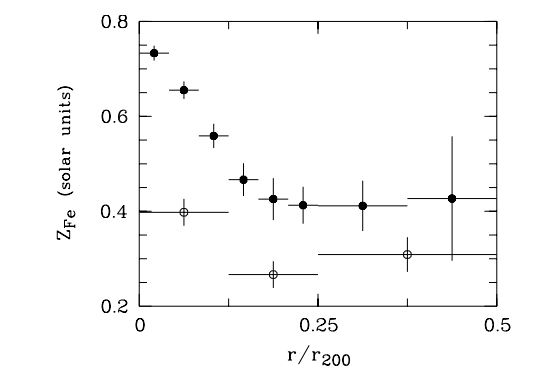
Metal enrichment of the ICM
Ghizzardi et al. 2021
Liu et al 2020
Molendi et al. 2016
Ghizzardi et al. 2014
Leccardi et al. 2010
Gastaldello et al. 2010
De Grandi & Molendi 2009
De Grandi et al. 2004
Gastaldello et al. 2002
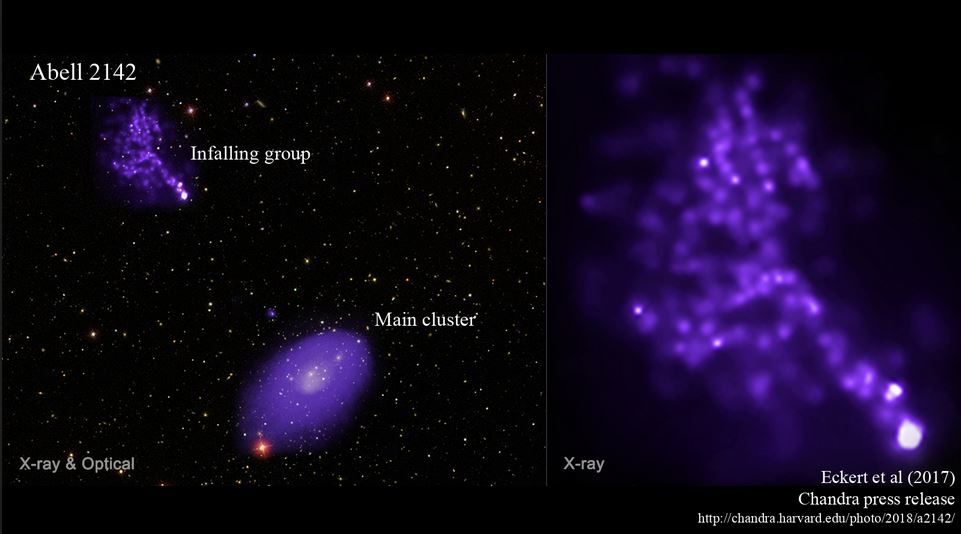
Galaxy clusters formation and accretion mechanisms (group infalls, ram pressure stripping…)
Eckert et al. 2017
De Grandi et al. 2016
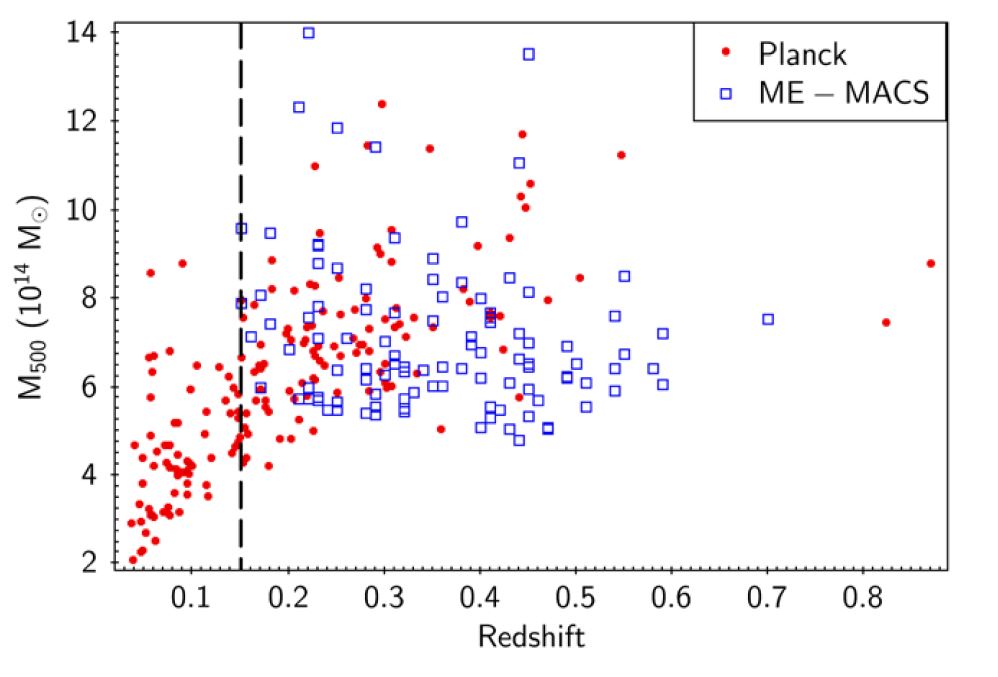
Construction and properties of representative samples of galaxy clusters
Rossetti et al. 2017
Rossetti et al. 2016
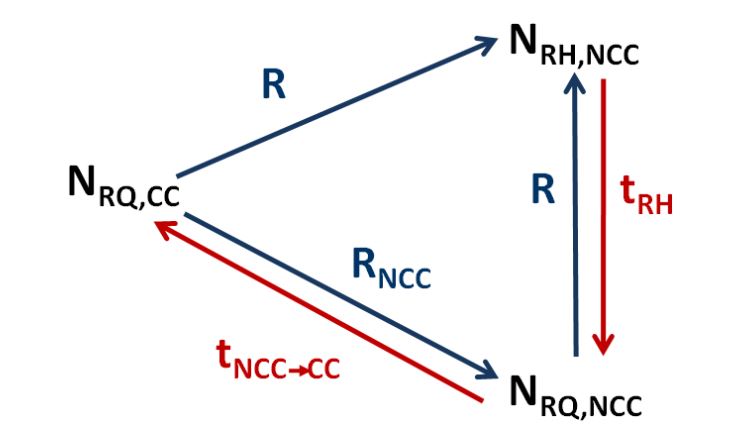
Evolution of the cluster population
Bartalucci et al 2019
Rossetti et al. 2011
Leccardi et al. 2010
Rossetti et al. 2010

Cold fronts and sloshing (at all scales)
Ghizzardi et al. 2014
Gastaldello et al. 2013
Rossetti et al. 2013
Roediger et al. 2012
Ghizzardi, Rossetti, & Molendi 2010
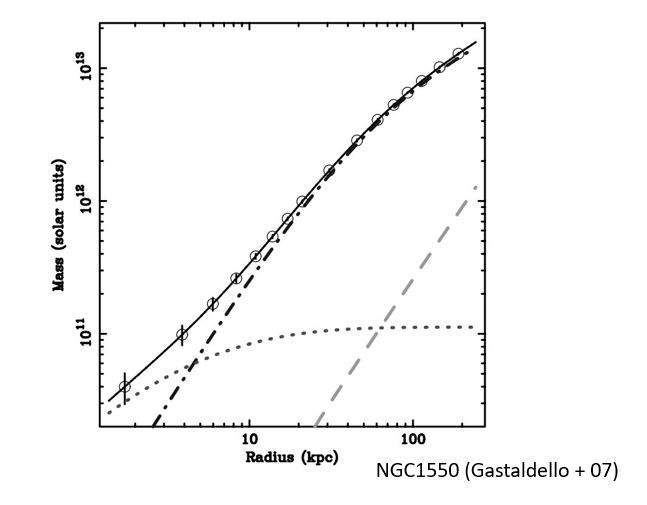
Mass estimations for galaxy clusters
Ettori et al. 2019
Ettori et al. 2010
Gastaldello et al. 2007
Buote et al. 2007
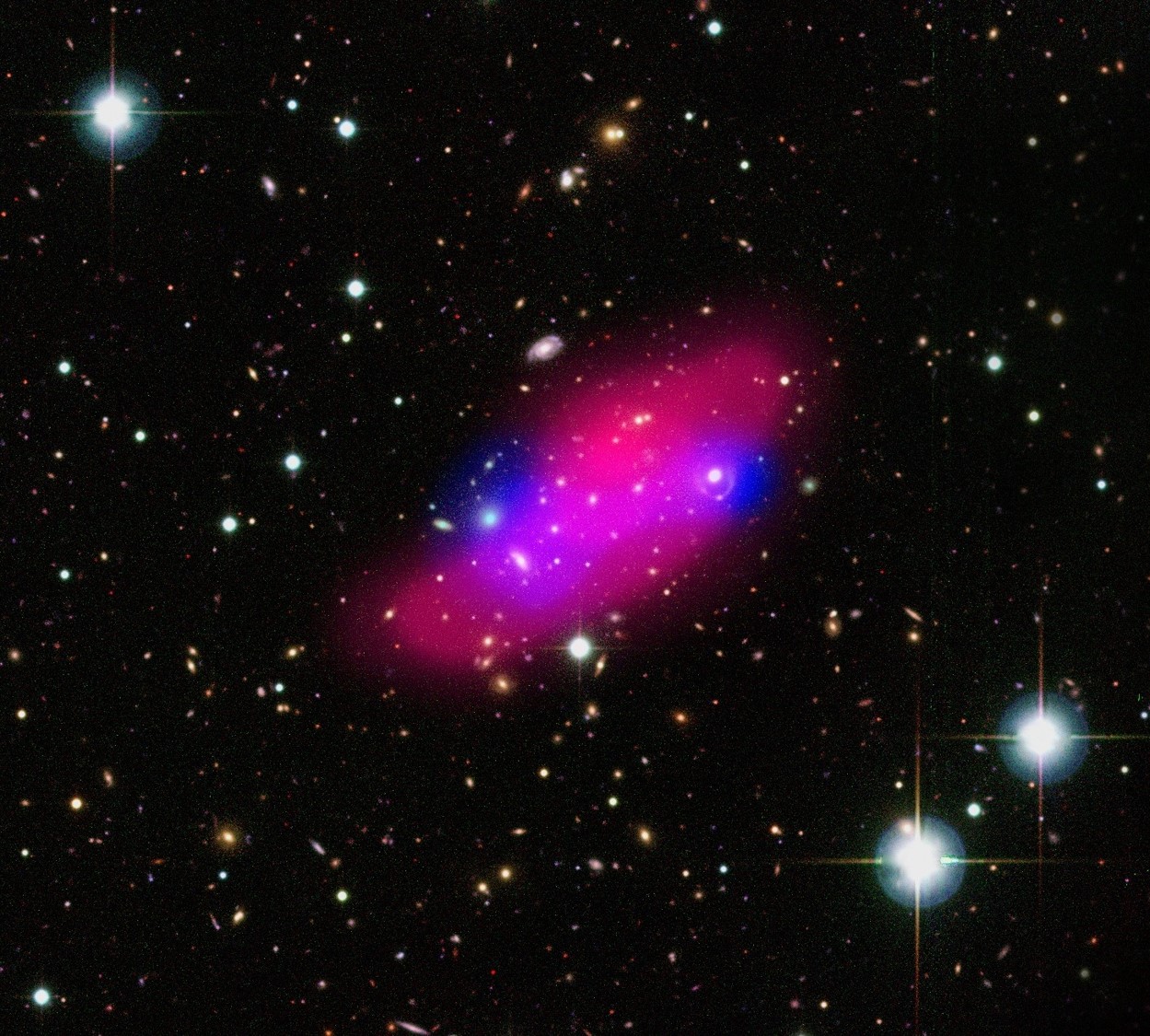
AGN feedback
Gastaldello et al. 2009
Gastaldello et al. 2008
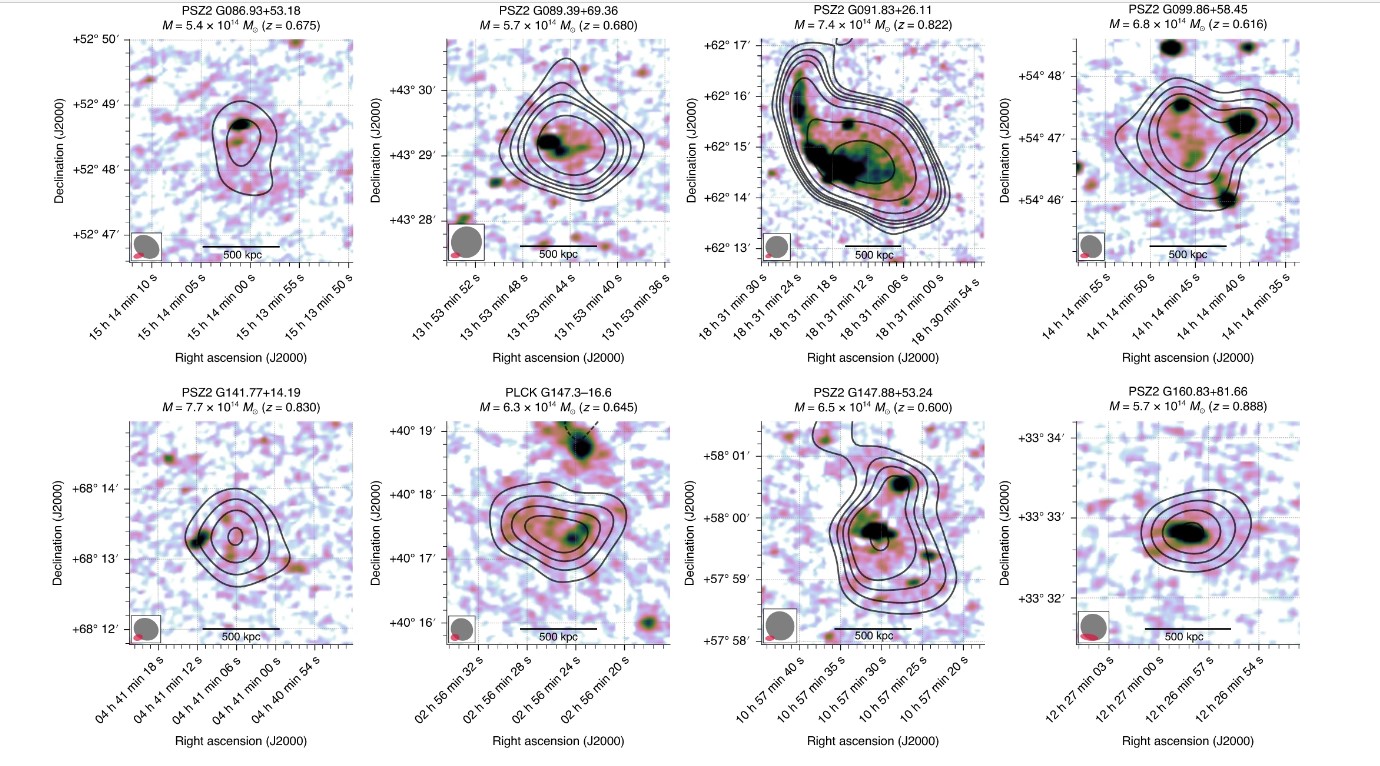
High-z clusters
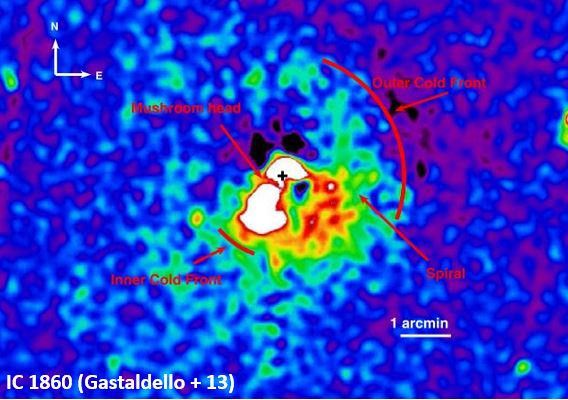
Galaxy groups
Sarkar et al 2021
Gastaldello et al. 2014
David et al. 2014
Gastaldello et al 2013
Gastaldello et al. 2009
our papers on this topics
Contacts
Silvano Molendi
Fabio Gastaldello
Simona Ghizzardi
Mariachiara Rossetti
Lorenzo Lovisari
Iacopo Bartalucci
Marco Balboni
Giacomo Riva
Sabrina De Grandi
